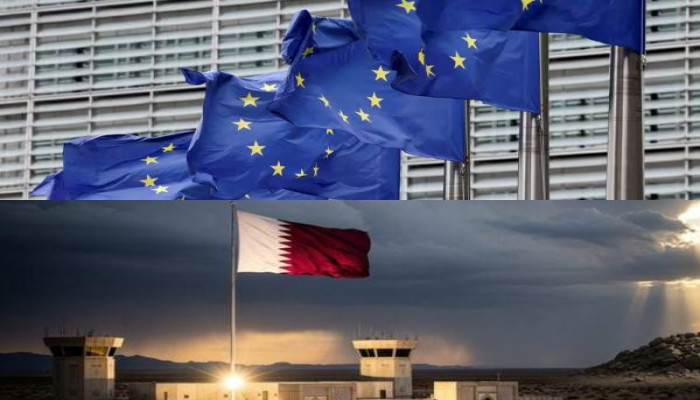EU’s green rules stir row, draws international flak: India opposes, Qatar warns
- In Reports
- 08:30 PM, Nov 04, 2025
- Myind Staff
The European Union’s new green laws have become a major point of tension with key partners like Qatar and India.
On Monday, Qatar warned that it could stop sending gas to Europe if the EU does not change or withdraw its Corporate Sustainability Due Diligence Directive known as CSDDD. India too has strongly opposed the EU’s carbon tax, officially called the Carbon Border Adjustment Mechanism or CBAM.
Qatar is one of the largest gas producers in the world and became a key supplier to Europe after the continent reduced gas imports from Russia following the 2022 invasion of Ukraine.
India and the European Union are now negotiating a free trade agreement, but reports say that the carbon tax remains a major sticking point. Both sides have said they want to finalise the deal by the end of this year.
Qatar’s Energy Minister Saad Al Kaabi said that his country will stop exporting liquefied natural gas to Europe if the EU goes ahead with its new environmental and human rights rules.
The law known as the Corporate Sustainability Due Diligence Directive asks large companies to fix the “adverse human rights and environmental impacts” in their global supply chains.
“If Europe does not look at how they can water down or cancel the CSDDD, and still have a penalty of 5 per cent of our total world turnover as a penalty, we will not be delivering LNG to Europe, for sure,” said Al Kaabi, as per AFP.
India has also made its stand clear, saying it is “opposed to parts of it.”
“We have very deep reservations about CBAM, and we’ve been quite open about it. The idea that one part of the world will set standards for everybody else is something which we are against,” External Affairs Minister S Jaishankar told Euractiv in June.
EU officials have said they are trying to find a middle ground with India to move forward.
In September, EU chief negotiator Christophe Kiener told the European Parliament’s trade committee that the EU “will need to adjust the approach we usually take on trade and sustainable development” to reach a deal with India.
“The notion that there would be a dispute settlement, let alone sanctions applying to those commitments, the idea that the commitments would be legally binding, that civil society would be involved in the management of the agreement from that perspective, but also that those commitments would apply at the sub-federal level — these are elements that are very difficult for India,” said Kiener, as per Euronews.







Comments